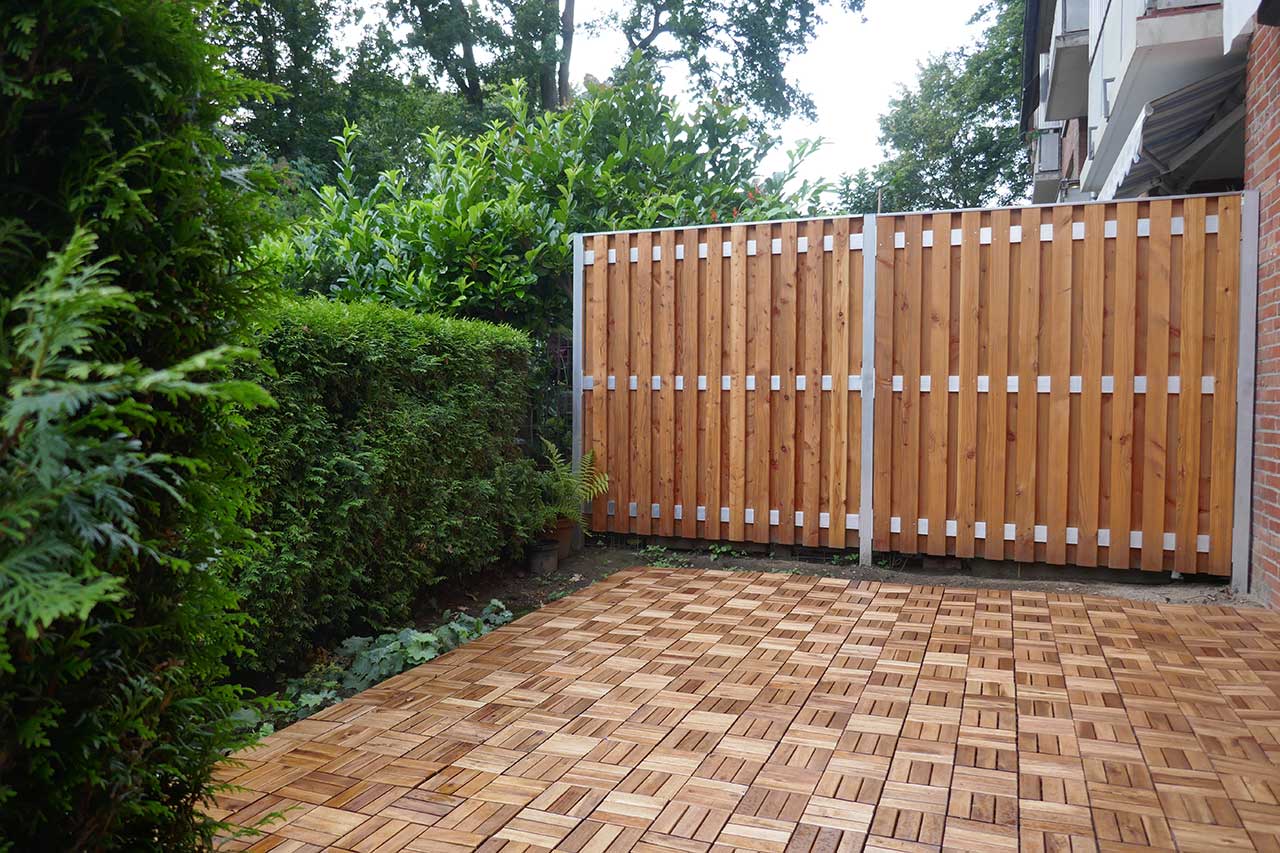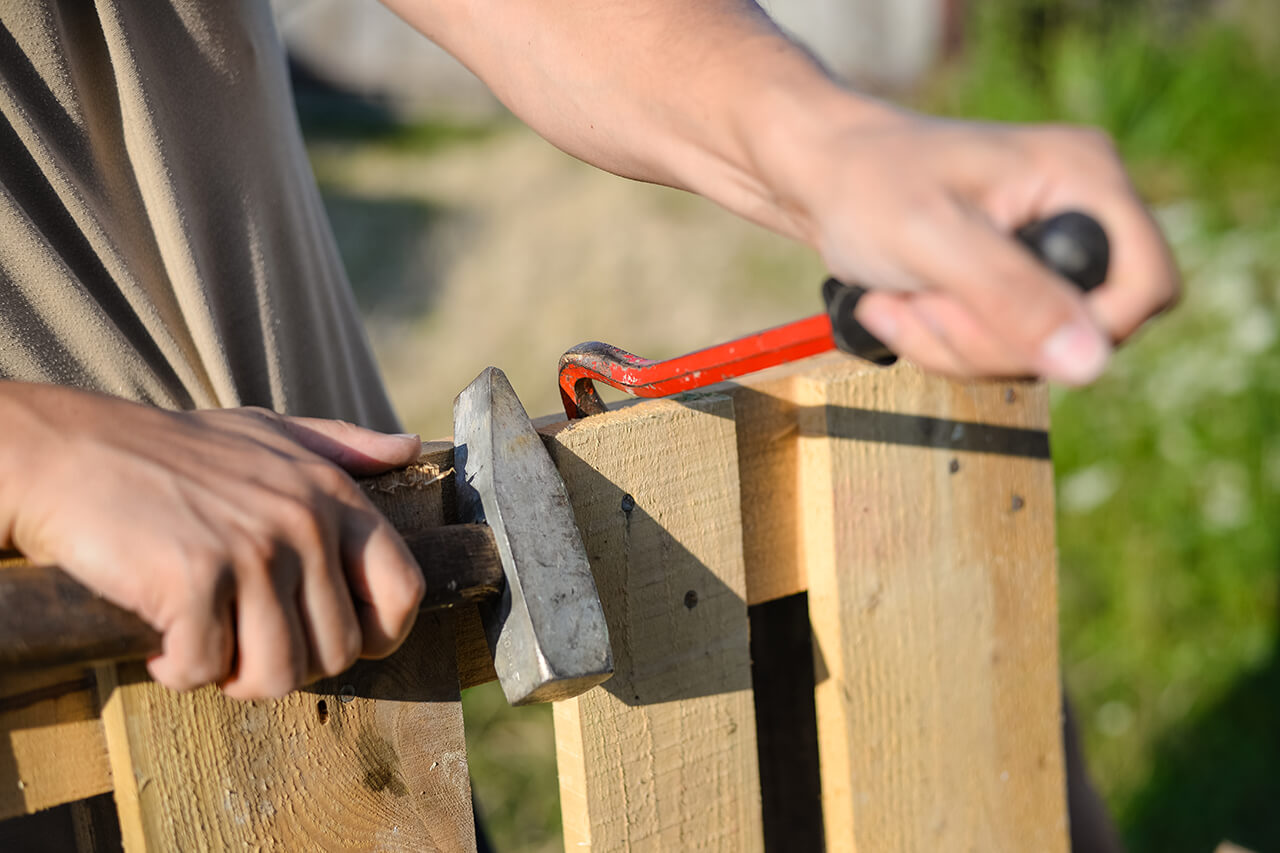How Much Does a Privacy Fence Cost in 2025?
Installing a privacy fence costs an average of $4,300


Installing a privacy fence costs between $1,800 and $8,000.
The average cost is $4,300, or $10 to $50 per linear foot.
Factors affecting cost include material, height, installation challenges, and extra features.
A privacy fence enhances security, privacy, and property value.
Hiring a fencing professional ensures proper installation and compliance with local codes.
This article was updated using automation technology and thoroughly reviewed for accuracy by HomeAdvisor Editor Ryan Noonan.
On average, homeowners spend around $4,300 to install a privacy fence, with most paying between $1,800 and $8,000. That's an average of $10 to $50 per linear foot, depending on factors such as height, width, ground preparation, and materials. Installing a privacy fence is a great way to boost your home's security and give you the seclusion you desire. By planning your budget and hiring a professional, you can ensure a successful and long-lasting installation.
Privacy Fencing Cost Factors
Once you've chosen the type of fence and the material, other factors influence how much your fencing project will cost, including how high you want your fence, site condition, any extra features you want to add, and ongoing maintenance costs.
Fence Height
The fence height influences the overall cost because it determines the surface area or material used per linear foot. For example, a 6-foot-tall privacy fence uses less material per linear foot than a comparable fence of seven or eight feet. Therefore, the taller the fence, the more you'll pay per linear foot.
Installation Issues
Difficult ground, uneven terrain, inclines, oddly shaped property boundaries, and limited site accessibility can all increase your total cost. These issues all require more labor time, increasing your final bill.
Labor
Labor to install privacy fencing costs between $10 and $15 per linear foot or $55 per hour. The exact amount you'll pay depends on factors like your location and the project's complexity. If your property has rugged terrain, steep slopes, or limited accessibility, installation may cost more due to the additional time and effort required.
Permits and Land Survey
You’ll need a professional to survey your property lines before building your fence to ensure you install it in the right place on your land. A land survey costs $250 to $1,000 for fence installation. Permits will ensure that your fence is built to code, Your fence installation pro can coordinate these tasks and project costs.
Extra Features
Adding features like decorative finishes, wood-look slats, cut-out top panels, or stylish top rails and post caps can enhance your fence's appearance but may increase costs. Talk to your local fencing pro about these options to find the best fit for your style and budget.
Ongoing Maintenance
It's important to consider how much you'll pay to keep your fence in good condition. Vinyl and composite fencing require minimal, if any, maintenance other than an annual cleaning with soap and water. Note that composite may eventually fade in direct sunlight, but you can paint or stain it to rejuvenate its appearance if that happens.
Wood fencing also needs regular ongoing care, including cleaning and staining. You may also need to treat the fence to protect against or get rid of insect infestations, fungus, and rot.
Privacy Fencing Material Costs
Common fencing materials cost between $10 and $50 per linear foot. While exotic hardwoods like Ipecan are more expensive, this guide will focus on the most popular and affordable options.
| Material | Cost per Linear Foot |
|---|---|
| Wood | $18 |
| Vinyl | $25 |
| Composite | $28 |
Wood
Wooden fences cost an average of $18 per linear foot, totaling $2,700 for a 150-foot fence. While they offer a classic look, wooden fences require regular maintenance, including annual staining or painting and treatments to prevent decay and insect infestations.
Vinyl
Vinyl fencing costs around $25 per linear foot, totaling approximately $3,700 for a 150-foot fence. This affordable option is resistant to rot, fungi, and insects and requires minimal maintenance. While it may not have the same lifespan as composite, vinyl offers a durable and cost-effective solution for many homeowners.
Composite
Composite fencing averages $28 per linear foot, or $4,200 for a 150-foot fence. If you're looking for a low-maintenance option that can last over 30 years, composite is an excellent choice. It's resistant to rot, insect damage, and mold and can mimic the look of wood if you prefer a wood-look design.
Privacy Fencing Costs per Linear Foot
Installing a privacy fence costs between $10 and $50 per linear foot, including both labor and materials. The total cost depends on the type of fence you choose and the size of your yard. By measuring your property's perimeter, you can estimate your project's total cost.
Here are some common fence sizes and their approximate installation costs:
| Linear Feet | Average Cost Range |
|---|---|
| 150 | $1,500–$7,500 |
| 200 | $2,000–$10,000 |
| 300 | $3,000–$15,000 |
DIY vs. Hiring a Fence Installation Pro
While you might be tempted to install a privacy fence yourself, hiring a professional fence installer is often the better choice. A local fencing pro has the expertise to ensure your fence is installed securely and correctly, saving you time and potential headaches down the road. They have the experience and equipment to properly level and prepare the ground before installing your fence, obtain permits, and properly construct your fence.
How HomeAdvisor Gets Its Cost Data
No place is more important than your home, which is why HomeAdvisor connects homeowners with local pros to transform their houses into homes they love. To help homeowners prepare for their next project, HomeAdvisor provides readers with accurate cost data and follows strict editorial guidelines. After a project is complete, we survey real customers about the costs to develop the pricing data you see, so you can make the best decisions for you and your home. We pair this data with research from reputable sources, including the U.S. Bureau of Labor Statistics, academic journals, market studies, and interviews with industry experts—all to ensure our prices reflect real-world projects.
Frequently Asked Questions
No, installing a privacy fence isn't rude as long as you respect property boundaries and comply with local regulations. By building the fence entirely on your property and following zoning codes, you're creating a safe space without causing offense. Informing your neighbors before building your fence can also help maintain good relationships.
A privacy fence should be between six and eight feet tall to offer clear privacy and security. This height range provides an effective barrier that meets both design and safety standards. It gives your property a balanced appearance while protecting your space without encroaching on your neighbor's area. Be sure to check your local building codes, as regulations may limit the maximum allowable height.
A professional can install a privacy fence in about 20 to 30 hours, while doing it yourself might take 40 to 50 hours. Factors like obtaining permits, preparing the site, and leveling the ground can affect the installation time. Additional tasks like removing an old fence or dealing with uneven terrain may also extend the project duration.
Yes, horizontal fences are more expensive than vertical ones, but offer enhanced durability and a modern look. Their design often requires more materials and can result in a stronger structure with better resistance to weather conditions. If you're looking for superior longevity and a stylish appearance, the extra investment in a horizontal fence may be worthwhile.
Yes, hiring a land surveyor is important because it confirms your exact property boundaries. This step helps prevent costly encroachment issues and legal disputes by ensuring that your fence is built entirely on your property. An accurate survey guarantees compliance with local zoning laws, facilitates a smooth installation process, and helps maintain good relations with your neighbors.





- Aluminum or Steel Fence - Repair
- Barbed Wire Fence - Install
- Vinyl or PVC Fence - Install
- Aluminum or Steel Fence - Install
- Electronic Pet Fence - Install
- Wrought Iron Fence - Install
- Wood Fence - Install
- Vinyl or PVC Fence - Repair
- Wrought Iron Fence - Repair or Weld
- Gate for Driveway or Security - Install or Replace
- Chain Link Fence - Install
- Chain Link Fence - Repair or Alter



